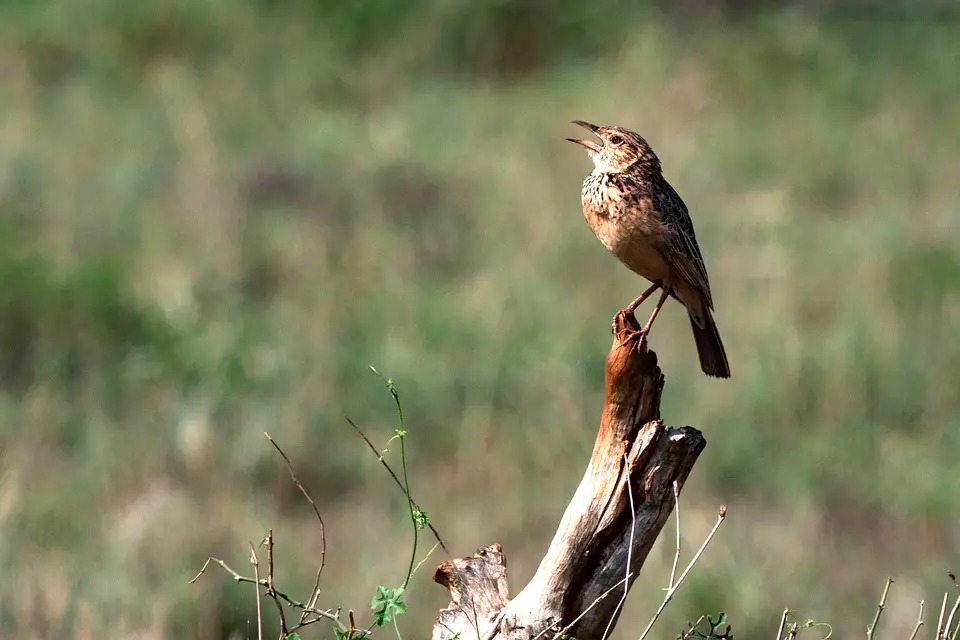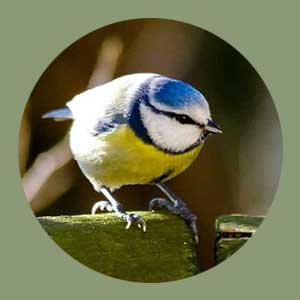My garden seems a fairly quiet place at night, at least from the birdsong point of view
.
Occasionally, I hear the beautiful song of the robin coming from the front of the house, but few other sounds. I wondered if birds make noise at night or if they all find a safe place to roost and conserve energy for the next day.
Several birds remain active throughout the night, the most notable being the barn owl. They become active at dusk and use their acute sense of hearing to hunt for food in the dark. Although their flight is silent, their hooting isn’t, neither is the scurrying sound as they swoop in for the kill.
Some species of garden songbirds continue their song long after the sunsets.
Table of Contents
Do all birds sing at night?
Birds fall into one of three categories;
- Diurnal – they are active during the day, sleep at night.
- Nocturnal – active at night and rest during the day
- Crepuscular – these birds are primarily active at twilight, moonlight, or occasionally on overcast days.
To confuse matters further; some diurnal birds exhibit nocturnal traits such as singing at night!
Why do birds sing at night?
Birds have an innate sense of when to start singing, but low light also triggers them into action. It is particularly true of the robin; they are happy to sing long into the evening. Artificial street lights encourage them to continue into the night, only stopping when they need to search for food.
Dunnocks and song thrushes behave similarly, though their songs aren’t as beautiful as the robin.
Even sleeping birds sometimes burst into song at night if rudely awakened. Thunder, fireworks, or earthquakes might start them off. Imagine during the blitz – the air filled with birdsong!

Which birds make noise at night?
Of the birds that sing at night, most are just visiting for the summer. Few are regular visitors to urban gardens; hear them in more rural environments.
Song thrush
They are common garden birds that happily thrive anywhere there are lots of trees and bushes.
Some migrate, travelling at night, letting out a random burst of song.
Of the song thrushes that stay; it is the male that intermittently sings as he holds his breeding territory. It occurs during the day and night time.
Robins
Robins are sedentary birds that sing all year round; it’s one of the reasons we vote them the UK’s favourite birds year after year. They sing at dusk and beyond in streets and gardens; their tuneful song is sometimes mistaken for the call of the nightingale.
Dunnock
Dunnocks are timid little birds that shuffle along the ground under cover of hedgerows. They are happiest in well-vegetated areas and are non-migratory. You can hear them day and night time if you listen carefully.
Nightingale
If you live in the northeast of England, you might be lucky and hear the nightingale’s beautiful song. They arrive in April and sing during the day and night, until late May, early June. By July, sometimes August, they are ready to continue their journey to escape our winter climate.
Nightjar
Nightjars are often found in southern England but sometimes seen in parts of Wales and where south-west Scotland and north-west England meet. They inhabit heath and moorlands, open woodland, and conifer plantations.
They begin their search for food at dusk. An act signified by the rising and falling of the male’s tuneful call.
Reed warbler
Reed warblers are another visitor who only stays for the summer. This little fella is easier to hear than see; they prefer to sing their song at night from amongst the reeds, not from perches like most other birds.
They are most likely heard in East Anglia and along the south coast.
Sedge warbler
Sedge warblers also like reed beds and damp wetlands to sing their song at dawn and dusk. Theirs is not a melodic tune, more a rambling noise.
They are only heard in summer; when August rolls around they head to Africa in search of warmer temperatures.
They are common all around the UK except for Scotland, where they inhabit several coastal regions.
Corncrake
The corncrake is the final of our summertime visitors that prefer to winter in central and southern Africa.
Corncrakes are related to coots and moorhens, but unlike their cousins, they live on dry land.
They are small, timid birds that spend the day hidden amongst farmland vegetation or anywhere with tall plant cover. It is after-dark that they come to life; letting out a noisy, shrill call, loud enough to disturb their rural neighbours.
Final thoughts
Many birds that make noise at night remain for the beginning of the dawn chorus. The conductor is always the robin; if their internal clock doesn’t wake them, the first glint of light will.
Most nocturnal birds only spend the summer here, so if you’re disturbed by their noise overnight, rest assured, as the days shorten, they head for warmer climates.
